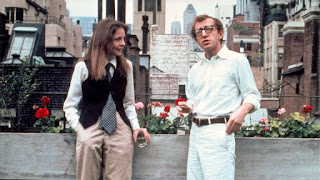(Picture from Google Images)
“Pandemic” is a
six-episode documentary series about the prevention of a pandemic outbreak. For
my analysis I have chosen two of the episodes in the belief that they include
ideas particularly inspiring at this time when COVID 19 is causing world panic.
As I see it, the
docuseries is intended to impress the audience with the global need for
pandemic prevention and the efforts to overcome the hindrances on the path to
success. Besides using maps and data to highlight the universal impact of a
pandemic outbreak, the filming team has been to different parts of the world, bringing
the viewers to the fields and laboratories where scientific research is done
and to quarantine infested areas where there are strict government measures to
break the transmission chain.
“Pandemic is now”
(episode 2) is focused on the challenges involved in the implementation of a
vaccination program. One challenge is from the strong opposition against a
Vaccination Bill aimed to eliminate non-medical vaccine exemptions for school
children in Oregon. Among the protesters is a mother of five children, who,
when interviewed, questions the vaccine’s safety standard
and asserts
her right to decide what is best for her children. Conversely, Elizabeth, an
Oregon state senator, demands that the votes for the Bill, though tough, are
necessary as immunizing the children would be like protecting them in front of
a traffic light while vaccine hesitancy can be a world threat.
In addition to
protecting the children, a vaccination program, if well accepted, also serves to
prevent human-to-human transmission of viruses. This is the purpose for which the
refugees held in US custody at the Mexican border in TUSCON are vaccinated before
being granted the permit to settle down in the country.
But the WHO Health
Vaccination Program aiming to stop the transmission of Ebola virus is not so
well accepted in democratic Goma. The communities, each with an established
hierarchy not easy to cut through, tend to see the vaccine as a means to perpetuate
the ruins by infecting the population with the virus. What adds to the problem is
the frequent threat from armed attacks against the Ebola teams in the War Zone.
Moreover, the program is hampered by the fact that vaccines cannot be mass produced
fast enough to beat the quickly mutating virus.
Trust, therefore, is
essential to the acceptability of a vaccine. Efforts are directed towards the
development of a universal flu vaccine that can provide a broader protection
against different classes of the influenza virus. This, according to Jacob
Glanville, President of a biotech company, would be a biotechnology revolution,
a dream to strive for. Accordingly, researchers test the vaccine on the pigs available
at Guatemala at a comparatively low cost and this has achieved encouraging
results.
Episode 3 – “Seek,
don’t hide” - focuses on the efforts to track down the origin of viruses as
this would enable the scientists to move from being reactive to being proactive
-- to predict and prepare.
The docuseries directs
specific attention to the issue about avian viruses especially in densely
populated regions. To broaden the surveillance strategy, field teams are sent
to look out for emerging threats from wildlife to livestock and then to humans.
The researchers collect blood samples from ducks to see if they have a pandemic
potential when added to human blood samples in laboratory tests later. Likewise,
influenza viruses are tracked in both wild and domesticated animals throughout
the Middle East before they mutate.
Such surveillance
studies have led to valuable findings. Bats have been proved to be the
reservoir for the flu while raising livestock at unprecedented levels is deemed
a culprit behind the spread. Alarmingly, animal caretakers are the most
vulnerable population for an epidemic to start. Moreover, the seasonality of
viruses entails the anticipation of the trends of birds as huge
bird migration can trigger virus transmission.
The viewers meet the
heroes -- the scientists and medical professionals – in shots that have captured
their work and private lives. Every research project is seen as a positive learning
opportunity for the researchers as well as the students working with them.
Likewise, young scientists also get motivated by the chance to try new things
not tested before in the laboratory. However, overworked and inadequately funded
medical staff are under tremendous stress and some resort to Bible reading and
spiritual gatherings for strength and consolation.
On
the whole, the informative docuseries casts light on scientific and medical
knowledge comprehensible to the average viewer. Attention is also drawn to the
health perspective that “anything can affect any country and any country can
affect other countries”, thus raising an awareness about the rapid and
widespread impact of a pandemic outbreak. In fact, it teaches a moral lesson
and ends with the advice of Dr. Dennis Carroll, director of USAID’s Emerging
Threats Unit, that as nothing is eternal, we have to change the way we live on
this planet to avoid the worst consequences of change.
I
recommend this docuseries enthusiastically especially to people with curious
questions about the large amount of information circulating online about the
viruses these days.











